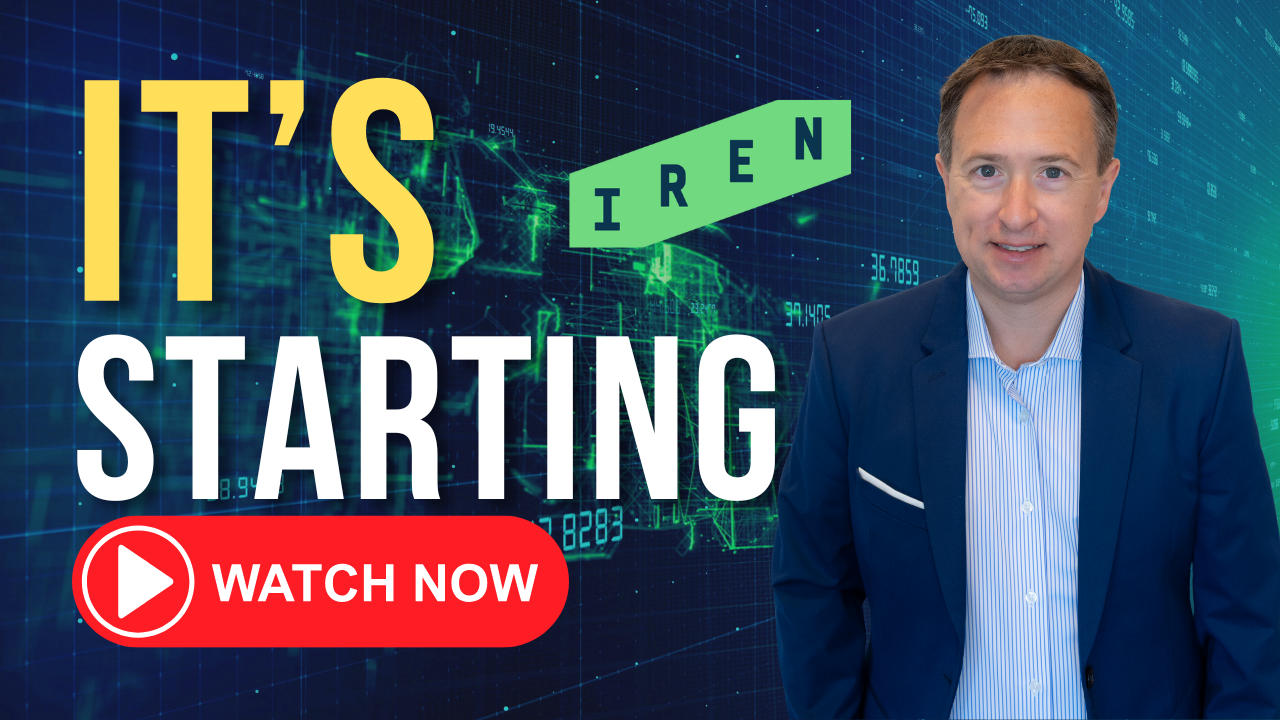In this week's episode of Industry Focus: Tech, host Dylan Lewis and Motley Fool contributor Danny Vena dive into two fantastic, well-run, and very exciting international companies that still have a heck of a lot of growth to tap. Whether you've never heard these names before or you're all too familiar with the idea that you missed the boat here, this episode has something for you. Tune in to learn more about what these businesses do, from business models to how they make money to what sets them apart and more; the tons of growth ahead; and the biggest risks and concerns investors need to be aware of. Plus, the hosts talk about iQiyi's (IQ 4.41%) inspired use of the Netflix model, how Latin American currency effects muddy up MercadoLibre's (MELI 0.25%) stellar growth trends, and much more.
Check out the latest earnings call transcript for iQiyi and MercadoLibre.
A full transcript follows the video.
This video was recorded on March 1, 2019.
Dylan Lewis: Welcome to Industry Focus, the podcast that dives into a different sector of the stock market every day. It's Friday, March 1st. We're talking about two international tech stocks that put up big earnings results. I'm your host, Dylan Lewis, and I've got Fool.com Danny Vena on Skype. Danny, what's up?
Danny Vena: Hi, Dylan! It's another somewhat sunny day in San Diego. I know you guys have been dealing with snow, but for us, it's going to be about 65 today and a little cloudy.
Lewis: [sighs] You know, we were a little worried, we saw some snow in the forecast. Only wound up getting half an inch or something like that. Unfortunately, it'll be turning to rain later, so I'm a little jealous of the weather situation you have over there.
Vena: You know, come on out and visit! We'll get some coffee.
Lewis: [laughs] I might have to take you up on that sometime soon. Danny, a lot of things coming up rosy for you. You've got good weather over there, and two stocks that you follow very closely, both of us own, put up some pretty awesome earnings results over the past week and a half or so.
Vena: That's true, and the market seem to really like it. Both iQiyi, which is commonly called the Netflix of China, although it more closely resembles Hulu, put up its numbers and jumped about 20% on its earnings results, as did MercadoLibre, which is an e-commerce platform [...] in Latin America. Both of them have big comparisons to companies here in the United States, and both are putting up fantastic numbers.
Lewis: Folks that follow The Fool universe of stocks might know these names, but I think they still have flown under the radar for a lot of investors. We're going to do our best to help raise their profile on today's show. I own them both and I think they're both pretty excellent businesses that still have a lot of growth ahead of them. We're going to go through the results and talk about the opportunities that are still out there.
Why don't we talk about MercadoLibre first? Looking at this company, 2018 was kind of a rough year for the business, so a lot of people were happy to see the positive results. Let's do a quick recap on where they were last year.
Vena: Last year, they faced a number of challenges. This is a smaller company, comparatively. I mean, we're not talking Amazon-type numbers. MercadoLibre has a number of businesses in Latin America. Similar to Amazon's, it has an e-commerce platform, it has a logistics business, it has platforms available for sellers similar to eBay, it has a payments solution similar to PayPal. It has merchant solutions, merchant credit. A number of different businesses.
Last year, they ended up hitting several different issues at the same time, which really hit the stock hard. One was, there was a truckers' strike in Brazil, which is their biggest market, so items were not getting delivered, so people held off on making purchases. There was also an unexpected postal rate hike with the national postal service, Correos. Finally, there were some issues with an accounting change, which did not actually change any of the operational numbers, but what it did is it made the growth rate appear much slower than what it was. People were used to seeing 50%, 60%, 70% growth rates, and all of a sudden it looked like the growth had slowed to 20% or 30%. So, all of those things together gave investors pause and they went running for the sidelines.
Lewis: Yeah, I think this is the kind of company where you see the numbers and you almost always have to dig a little bit deeper to understand what's going on. We see the accounting changes more recently, but this is also a company that gets hit really hard with foreign exchange and currency fluctuations. We're going to touch on that in a second.
Let's talk about the results here. Super strong numbers coming in, really great if you're looking in local currencies. Of course, we have to make the adjustment to the dollar because that's how they report their numbers.
Vena: That's true. It's worth noting that this really only happens on paper. They will have occasion to exchange their Brazilian real-denominated currency into dollars, but by and large, it stays in Brazil and it stays in the local currency. It really doesn't have any effect on the operating business. What it does do is, in order to translate those results into a form that the SEC will accept, they have to exchange those foreign currencies into dollars. And when they do that, it looks horrible.
Just to give you an example, MercadoLibre's revenue was $428 million. That was up only 20% year over year, which really doesn't seem that impressive. But, when you look at it in local currencies, their revenue was up 62% year over year.
Lewis: [laughs] Yeah. That's why it's a company that's worth digging into the numbers on. We saw that, looking at the bottom line, they produced a net loss of about $2.3 billion. Again, that was something that was impacted by them denominating back in dollars. In local currency, they actually posted a profit, right?
Vena: That's true. Their foreign exchange losses, which is what happens when you translate from local currencies into dollars, was $3.9 million. If you look at their loss, which was only $2.3 million, they actually had a $1.5 million gain for the quarter.
Lewis: So, it's not like this is an insanely profitable business, but they are not losing money the way that you would think of just looking at the way that they're stating things in dollars.
We talked about the currency swings. That's why it is so important with this company to look at some of the core business metrics. The currency stuff will mask what's going on, but you look at the core business metrics here, and that shows a company that's really firing on a lot of cylinders. The confirmed registered users for them, which is a strength of their overall marketplace, the Amazon-type part of their business, up to 267 million, up 26%.
One thing that might give people reason for pause is a little bit of a slowdown in what we saw in item sold, only up 5% year over year. This is another one where we need to double-click into the numbers and see what's going on, though.
Vena: That exactly right, Dylan. There were a number of things. I spoke briefly earlier about the unexpected postal rate hike. That was pretty severe, particularly on smaller items. The Brazilian National Postal Service raised rates something ridiculous on smaller items, like 30%, which was kind of crazy. MercadoLibre hadn't expected that. So, going into the latter part of the year, they made several adjustments with their customers to address that. They took a number of smaller items off of the website, they limited the number of smaller items that they now carry. Additionally, what they did is institute a flat rate that they charge to members -- I don't remember off the top of my head, I think it's $2.50 or something like that -- for these smaller items to defray the cost.
Now, what happened is, because there are so many fewer items available on the site, and because there's a flat rate shipping, that has discouraged people somewhat from buying these smaller items. That's to be expected. I think what's going to happen is, once we lap that change that we've seen, those numbers are going to go back to their historical averages. For items sold, they've typically been going up between, I want to say 40% and 60% year over year for most quarters.
Lewis: One other way to think about the way that that impacts the overall results is, because they're removing some of the lower-priced items, the average ticket is probably going to be going up on a lot of those orders, but there will be less orders overall. Just a different way to think about the puts and takes that come with some of the decisions that management has made.
The big highlight for me in this report, though, Danny, and the thing that made me frankly pretty giddy as an investor in this company, was what's going on with payment transactions. This payment business is looking mighty fine.
Vena: That's really one of the big stories behind this company. If we go back just a little bit, just to provide investors with some history, when this company started, they were invested in by eBay. eBay mentored them in their early years. One of the things that they did under eBay's guidance was to basically start their own payments system. Similar to PayPal, MercadoLibre started a service that they call Mercado Pago. Mercado Pago is really well-liked and well-used in Latin America.
A little more background, Latin America is not like the United States in that here, everybody has a checking account, everybody has a credit card. That's not the case in Latin America. In Latin America, what you see is a much more cash-based society. They're not using as many credit cards there. Many people don't have checking accounts. But, Mercado Pago came along, and people started adopting this. For instance, in the most recent quarter, those payments transactions went up 72% year over year. The reason for that is because that payments solution has gone off of their platform and is now being used by small businesses, similar to Square. It's being used by retailers, similar to PayPal. It's spreading to other e-commerce websites because it's becoming one of the de facto premiere payment methods in Latin America.
Lewis: The wonder there is, this goes from something that was an elegant solution for them to create e-commerce transactions on their own platform and make that a little bit easier for people that are unbanked to now, the opportunity for the off-platform transactions is even bigger than the on-platform. That's how management talks about it. You look outside of all the activity that happens just on MercadoLibre, it's dwarfed by everything else that happens in the economies there, in terms of financial transactions and exchanges. Big opportunity there.
Total payment volume, $5.3 billion, up from $4.3 billion in the prior year quarter. We're going to see growth both from stuff that happens on MercadoLibre's properties and stuff that happens in people transacting the way they would with Venmo or PayPal here in the States.
Vena: True. MercadoLibre's CEO on the conference call, even said that they expect the off-platform transactions to overtake the on-platform transactions probably sometime in the next year. And then the sky's the limit. As long as they're expanding into more retail stores, they're expanding into small businesses, they're expanding on to other websites, really, the sky's the limit for their payments business. It's going to overtake every other business that they have at some point.
Lewis: Yeah, the market's big. I think one of the reasons you have to love it as an investor, management touched on this in the call, is the opportunity is a little bit different when you look at the margins and the nuts and bolts of how these businesses work. The marketplace for them is positive margin, but it's very low margin. The way management thinks about this is, it's a distribution platform for everything that they do, kind of similar to how Amazon's Marketplace creates this ubiquity that then gives them the ability to offer Prime, offer Prime Video, and kind of become this service that people expect in their lives. Ditto for MercadoLibre. You look over at the payments and financing side, though, far higher margin, especially on the credit side.
Vena: Another thing that they talked about on the call, and part of the reason that this is such an exciting opportunity, is that the company has found that when people use more than one of its services -- if people go onto the website and they make an e-commerce purchase, and then they use their shipping solution, Mercado Envíos, or they use their payments solution, Mercado Pago, or they use the consumer financing or the merchant financing -- anytime they use more than one of those services, the customer satisfaction goes up, the repeat business goes up, the lifetime value of the customer goes up. Then, they start using more services. And then, the more services they use, the happier the customers are, the happier the merchants are. And it becomes a self-fulfilling prophecy. The more they use, the more they like it, the more they use, and it just continues that way.
Lewis: Danny, in the tech world, we would call that a very sticky ecosystem.
Vena: Don't you love it?
Lewis: [laughs] Don't you love it? I want to call out, too, one of my favorite Fools, Brian Feroldi, made this very good point on Twitter. I think it's easy to look at the fact that the stock is up something like 25% after earnings; you look back over the past couple of years and it's been a multi-bagger. It's easy to say, "It's gone on a heck of a run, what can I really expect here? Am I buying in a little bit too late?" Well, his breakdown here -- it's incredible, if you think about it, MercadoLibre is a $20 billion company. PayPal is worth over $110 billion. eBay, worth over $30 billion. Amazon, worth over $800 billion. MercadoLibre is all of them bundled into one. So, even though the stock's gone on a big run, in my opinion, plenty of room for it to continue to run.
Vena: The thing about MercadoLibre, and it's something that we've dealt with over the years, so I'll just throw it out there, is that anytime something happens in Latin America that causes any kind of upheaval -- if you have the truckers' strike in Brazil, if you have the devaluation of currency, the currency exchange rate issues that we already talked about, political upheaval, any of those things -- investors get frightened away and the stock dips. So, people that can look past that -- and David Gardner, The Motley Fool co-founder, likes to say, "dark clouds that I can see through." People that look at the longer term of this business and can just ride out those small dips are being rewarded well for their patience.
Lewis: Yeah. I think this plays on so many great trends that we like as investors. E-commerce, mobile payments, helping out people that are unbanked and making those transactions easier. Yes, there's the looming threat of an Amazon-like player coming in there; but, you think about how much they're doing to build out their own ecosystem, that should insulate them a little bit, especially because it's such a fragmented area. There are so many different countries that they operate in in Latin America.
Vena: They've done a number of things to try to minimize the threat from Amazon. While you can probably never do that, at least not completely, they've taken a number of steps. One of the things that they did was they instituted free shipping for a lot of their merchants. It's not something that even comes out of their pocket. They subsidize it somewhat, but a lot of that is in collaboration with the merchants, so they're not really paying for the entire shipping cost. Again, they're building out a logistics operation. They have a number of warehouses now throughout Latin America and they're building more. These warehouses allow them to do what's called cross-docking operations, which is when a truck will come in from a merchant, it will drop off products; those products will be loaded right onto another truck for delivery to customers. That's part of the logistics operation.
They don't own any of these trucks. They don't own any of the shipping solutions. They do something similar to what Amazon did in the early years, which is, they have agreements with many of the major shippers in the region. Because they provide bulk and because they provide volume, they get better pricing. So, again, that's more of the ecosystem of products and services that they have. That's really going to serve investors well.
Lewis: Alright, Danny, let's switch gears here and talk about another company. This is one we own. It's one we talked about before on the show. I actually had you on to do the breakdown of their prospectus right around the time that they were going public. iQiyi, what we would colloquially refer to as the Netflix of China.
Vena: That's exactly right. It is typically called the Netflix of China. I tried to change people's view of that as much as I can by saying it's more than that. While Netflix is primarily a subscription-based business, and that's all they do, iQiyi operates in a little different culture in China. Historically, people in China were not used to paying for video. That's something that iQiyi started doing when they were still owned by Chinese search giant Baidu a number of years ago. They put up a paywall, they put in some premium content, and they began encouraging subscribers to move over to the subscription service. Now, they still have both, they still have an ad-supported service similar to Hulu, and they have a subscription-based service similar to Netflix. They actually do have the best of both worlds there.
Lewis: Thinking about where the business is going, membership services revenue up 76% in the most recent quarter. Advertising revenue, 9%. It's clear where the business is going. They're a little bit more reliant on the membership services side than the advertising for long-term growth. Something that is interesting with them, too, makes them a little different than Netflix, is that they also have some other revenue segments out there.
Vena: They do. In addition to the subscription revenue that they get from members, and we've already mentioned the ad revenue, they also have two other segments that they use. One of them is content distribution. Imagine if Netflix, with some of its original content, said, "There are so many people that are never going to see this. Why don't we license this out for a period of time for them to show it on TV, for it to be used by other streaming services?" So, they get revenue from licensing out their content.
The last segment that they have is other. Their other segment includes merchandising and video games that are based on the company's original content. Similar to what Netflix is doing with, say, their hit series Stranger Things. You can go into stores and you can buy your favorite Stranger Things character on a coffee mug or on a T-shirt. iQiyi is doing that with its hit programs. You can go buy T-shirts and coffee mugs. Or, you can download a video game and play it on your phone that's based on characters from their TV programs.
Lewis: Both of those segments are smaller portions of the overall revenue pie for iQiyi, but both up over 100% year over year in the most recent results. You put it all together, this is a company that grew 55% year over year. Pretty incredible. Both beating guidance and analyst expectations on Wall Street. A big part of that is the fact that the member base for this company keeps going up.
Vena: They're following the Netflix playbook. For years, the bears have said, "There's no way that Netflix is going to be able to do this," and yet they continue to do it. What they have done, several years ago, going back to about 2013, Netflix said, "Instead of licensing content from other people, we're going to produce our own content." Then it went from producing some of their content now to they actually produce and own some of their content. That's a model that iQiyi has embraced. They're quickly building out their own library of content.
Some of these programs are massive, massive hits in China. One that I refer to from last year is called Hot Blood Dance Crew, which is a reality program that pits street dancers against each other in a competition. It became one of the most-watched programs in China. It had billions of views over the 24 or 26-week production. Billions of views. Became one of the most-advertised programs in the country.
Again, they're following the Netflix playbook on original content. They spent nearly $1 billion on content. If you look back, they actually had only $1 billion in revenue, so they're essentially spending every dollar that they have on content and going into the hole a little bit on some of their other expenses. But they have Baidu as a parent, and they have huge backing. They've got a couple of billion dollars in the bank after having recently acquired some debt. They're really in a good place right now just to continue building out that library of content and following the Netflix playbook. And with 1.3 billion people in China they've really just scratched the surface of their potential subscriber base.
Lewis: One thing that does separate the Netflix model from iQiyi is, Netflix, to a lot of fanfare, really dramatically expanded a couple of years ago and said, "We're targeting well over 100 countries," and they did it pretty quickly. The content travels very well. What'll be interesting to see with iQiyi is, we have something like 90 million members, give or take. The total market, about 1.3 billion in China. Are they able to get outside of China with that member base? Because then the growth becomes even bigger as a runway. I'm not as sold on that, but I look within the country and I say there are still a lot of prospective members out there for them to add.
Vena: Absolutely. If you look at their membership base right now, I think their reported subscriber numbers grew to just over 87 million. To put that into perspective, I think Netflix's subscriber numbers just in the United States in the last quarter was somewhere in the neighborhood of 56 million. They've already exceeded the number of subscribers in their home country that Netflix has in the United States. Again, there's 1.3 billion people in China. If you put that in perspective, in the United States, I want to say there's 325 million --
Lewis: Yeah, 340 million, something like that.
Vena: They have 4X the potential customer base in China than Netflix has in the U.S. They still have a lot further to go.
Lewis: You mentioned Baidu. Obviously, it's super helpful to have a former parent company that has pretty deep pockets and knows a thing or two about tech and consumers. This company has also been pretty brilliant in the strategic partnerships they've gone out and inked to help them reach more members and make it easier to sign up for their services.
Vena: That's true. If you are a consumer in China, you have heard of JD.com, which is one of the larger e-commerce platforms in China. You've heard of China Mobile, which is one of the most ubiquitous cellphone services, similar to AT&T or T-Mobile in the United States. You've probably heard of Ctrip, which is the Chinese version of booking.com, formerly Priceline. These are well-known names to Chinese consumers.
What iQiyi has done is, they've gone out into the market and they've partnered up with these customers. For instance, with JD.com, they did a special deal where you can get a membership to both, the premium membership to JD.com and subscriber benefits from iQiyi, all for one price. You pay the price for just one and you get both services for the course of a year. What they're banking on -- and I think they're right to do so -- is that once people get on the service, they get used to watching their favorite programs, they become enthralled with the content, they're going to continue that relationship. Same thing with China Mobile. Same thing with JD.com, Ctrip. All of these companies, once they sign up for these benefits, these companies are hoping that they will stick around. I would argue that iQiyi is in the best position to benefit from these relationships.
Lewis: Yeah. You look at them, it's kind of Netflix a couple of years ago, in terms of where they are in their growth plan. You see that in their content spend now. It's a fraction of what Netflix's content spend currently is. Their revenue is also a fraction of what Netflix's current revenue is. But the playbook has been so well executed by Netflix, and iQiyi almost has a look into the future because Netflix is several years ahead of them, in this sense. The model is so strong, the customer satisfaction seems so strong, and they similarly have these cultural-event-type shows that they're able to release and really just take over whatever the social conversation is. I think they've done a great job executing. Happy to be a shareholder!
Vena: I am as well! One of the things that you have to keep in mind with both of these companies -- with MercadoLibre and iQiyi -- is that just because of the nature of their business, just because of where they are in their growth trajectory, there are still going to be wild swings in the stock price. Historically, I've followed MercadoLibre for a decade, and one of the things that you see is that their price tends to fall 25% to 40% regularly. I believe that iQiyi is on a similar trajectory. They're going to skyrocket, and then their share price is going to fall 20%, 30%, 40%, and the fair-weather investors are going to get frightened out, and then the stock is going to start to climb again. You have to be prepared for volatility with both of these stocks.
That said, volatility is not risk. Risk is whether or not the stock is going to go to zero. I don't think either one of these companies has that to worry about, not with the business models that they have in place. But, again, there's going to be some volatility, and that's something you just have to steel yourself for, and on bad days, look away from your computer screen and go do something else.
Lewis: Yeah, we were Slacking, setting up some show notes before we stepped into the studio today, and you said MercadoLibre is one of those companies, you buy it and then you just put it on the shelf. [laughs] You understand, there are going to be those swings here and there. You could say something similar about iQiyi. Obviously a little bit earlier, and you want to take smaller bites with a company that's still building up. With both of these companies, a lot of volatility ahead, but they play on really, really great mega-trends that we've seen be successful for other businesses. No reason to think they can't execute as well.
Vena: I think that's exactly the case, and that's why I'm happy to be an investor in both of these companies, and expect that we'll be back talking about them for many years to come.
Lewis: I would be thrilled if that happened. Danny, thanks for hopping on today's show!
Vena: Glad to be here! Take a pilgrimage out to San Diego sometime!
Lewis: [laughs] We'll have to make that happen! Listeners, that does it for this episode of Industry Focus. If you have any questions or you want to reach out and say hey, you can shoot us an email over at [email protected], or you can tweet us @MFIndustryFocus. If you're looking for more of our stuff, subscribe on iTunes or check out videos from this podcast over on YouTube.
As always, people on the program may own companies discussed on the show, and The Motley Fool may have formal recommendations for or against stocks mentioned, so don't buy or sell anything based solely on what you hear. Thanks to Austin Morgan for all his work behind the glass. For Danny Vena, I'm Dylan Lewis. Thanks for listening and Fool on!





